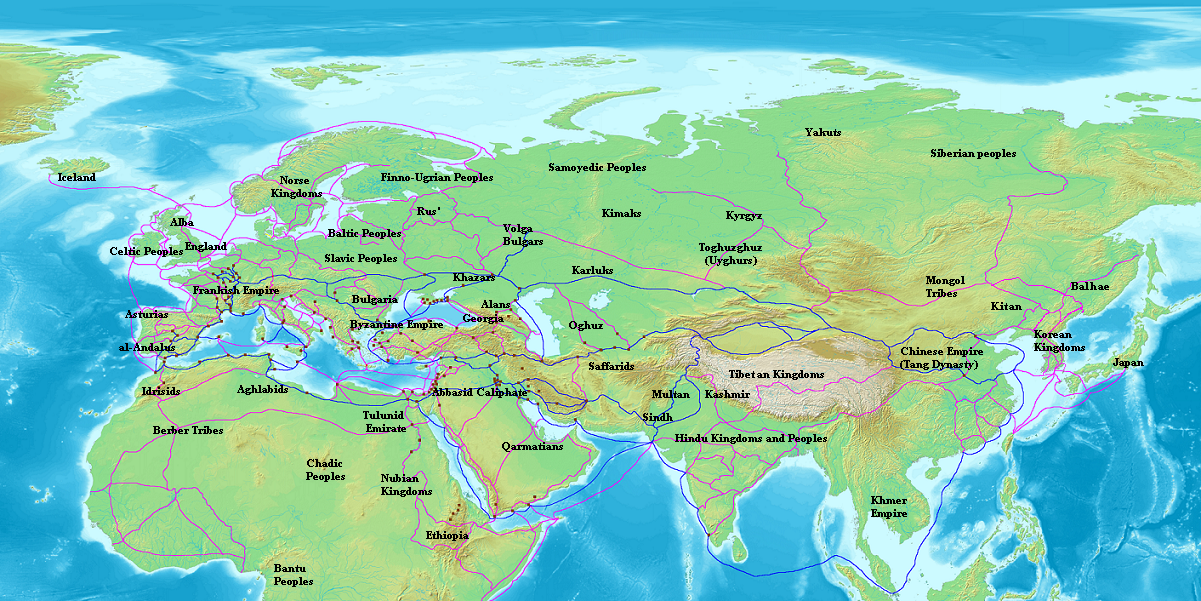|
Rādhān
Rādhān (or al-Rādhān, ar, راذان) was a region in south central Mesopotamia (Iraq) in the early Middle Ages. It was an administrative district under the ʿAbbāsids and also a diocese of the Church of the East. It is also known to have had a Jewish population and was probably the country of origin of the Rādhānite merchants. The name, however, does not appear in any Hebrew texts. The exact location of Rādhān is not certain, but it was not far from Baghdad. It may have been roughly the same as the area known since the later Middle Ages as the Sawād, a fertile territory southeast of Baghdad on the eastern bank of the Tigris.Moshe Gil, "The Radhanite Merchants and the Land of Radhan", ''Journal of the Economic and Social History of the Orient'', 17 (1974): 299–328. Other authorities place it north of Baghdad, still east of the TigrisDaniel King (ed.), ''The Syriac World'' (Routledge, 2019), maps 1 and 8. or further south of Baghdad and west of the Tigris in the regio ... [...More Info...] [...Related Items...] OR: [Wikipedia] [Google] [Baidu] |
Radhanite
The Radhanites or Radanites (; ar, الرذنية, ''ar-Raðaniyya'') were early medieval Jewish merchants, active in the trade between Christendom and the Muslim world during roughly the 8th to 10th centuries. Many trade routes previously established under the Roman Empire continued to function during that period—largely through their efforts. Their trade network covered much of Europe, North Africa, the Middle East, Central Asia, and parts of India and China. Only a limited number of primary sources use the term, and it remains unclear whether they referred to a specific guild, or to a clan, or generically to Jewish merchants in the trans-Eurasian trade network. Name Several etymologies have been suggested for the word "Radhanite". Many scholars, including Barbier de Meynard and Moshe Gil, believe it refers to a district in Mesopotamia called "Rādhān, the land of Radhan" in Arabic language, Arabic and Hebrew language, Hebrew texts of the period. Another hypothesis suggest ... [...More Info...] [...Related Items...] OR: [Wikipedia] [Google] [Baidu] |
